Are you navigating the complex world of embargoed goods certification? Understanding the nuances of compliance can be tricky, especially with ever-evolving regulations. In this article, we'll break down the key elements of creating an effective letter template for certifying embargoed goods, ensuring that you have all the necessary information at your fingertips. So, grab a cup of coffee and let's dive into the essential steps to streamline your certification process!
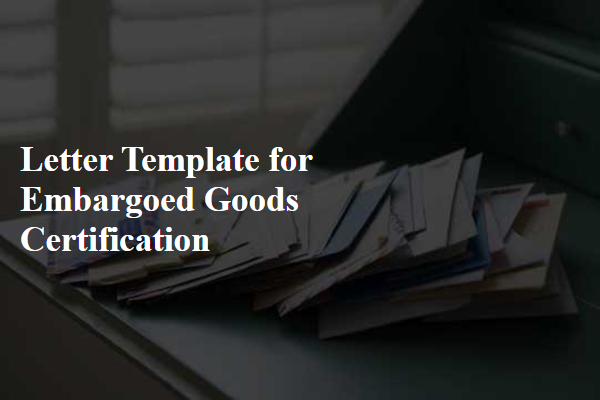
Identification of Goods
The certification process for embargoed goods involves detailed identification of items restricted under international trade regulations. This includes specific categories such as military equipment, dual-use technology, and certain chemical substances, all of which are defined by their Harmonized System Codes (HS Codes) linked to the World Customs Organization. Essential details to document include the country of origin, manufacturer details, and specifications of the goods, including dimensions, weight, and material composition. Entities involved in the certification, such as government bodies, customs authorities, and legal compliance agencies, play a crucial role in ensuring adherence to trade embargoes established by the United Nations or individual countries. Failure to correctly identify and certify embargoed goods can lead to severe penalties, including fines and restrictions on future trade activities.
Legal Compliance Statements
Embargoed goods certification requires strict adherence to international trade laws and regulations to prevent the illegal transportation of restricted items. The Export Administration Regulations (EAR) and the Office of Foreign Assets Control (OFAC) guidelines dictate specific licenses and compliance mandates essential for the shipment of goods. Companies must ensure that products are not destined for prohibited countries such as North Korea or Iran, which are subject to severe sanctions imposed by the United States government. Additionally, maintaining accurate records of transaction history, supplier information, and end-user details is crucial for legal accountability. Non-compliance can result in significant penalties, including hefty fines and imprisonment, underscoring the importance of thorough due diligence and compliance monitoring processes.
Purpose of Certification
Embargoed goods certification serves as a crucial document validating compliance with international trade laws and regulations which prohibit the import or export of specific goods. This certification is essential for businesses involved in the trade of sensitive items such as military equipment, dual-use technology, and items associated with embargoed nations, like North Korea or Iran. The certification process typically involves detailed reviews of shipping documentation, product specifications, and alignment with the regulatory requirements set forth by governing bodies such as the U.S. Department of Commerce or the European Union. Accurate certification helps mitigate the risk of legal repercussions and penalties associated with unauthorized trading activities, ensuring that companies uphold ethical practices while navigating complex international markets.
Prohibited Countries List
Embargoed goods certification is essential for ensuring compliance with international trade regulations, particularly concerning the Prohibited Countries List. This list includes nations where importing or exporting specific goods may lead to legal repercussions. For instance, countries like North Korea and Iran are frequently cited in embargo regulations due to their inclusion on various sanctions lists imposed by authorities such as the United Nations and the U.S. Department of Treasury. Certifications must specify the item types affected by these embargoes, such as military equipment, dual-use technology, or luxury goods. Up-to-date verification is crucial, as sanctions can evolve, reflecting changing geopolitical landscapes, necessitating rigorous internal audits for companies engaged in international commerce.
Contact Information and Signature
Embargoed goods certification involves verifying that certain items are restricted due to government regulations. The required documentation includes the contact information of the certifying individual or organization, which typically encompasses the name, address, phone number, and email address. A signature ensures authenticity of the compliance statement, signifying understanding and adherence to the legal ramifications of dealing with embargoed goods. Proper certification is crucial for maintaining trade legality and avoiding severe penalties associated with violations of international trade laws.
Letter Template For Embargoed Goods Certification Samples
Letter template of embargoed goods certification for export documentation
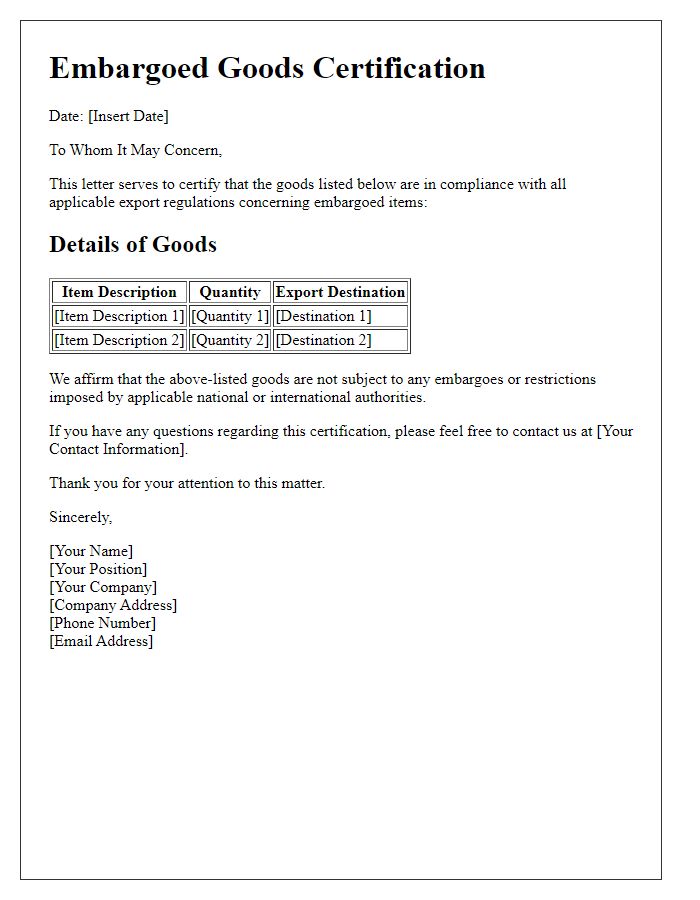
Letter template of embargoed goods certification for regulatory approval
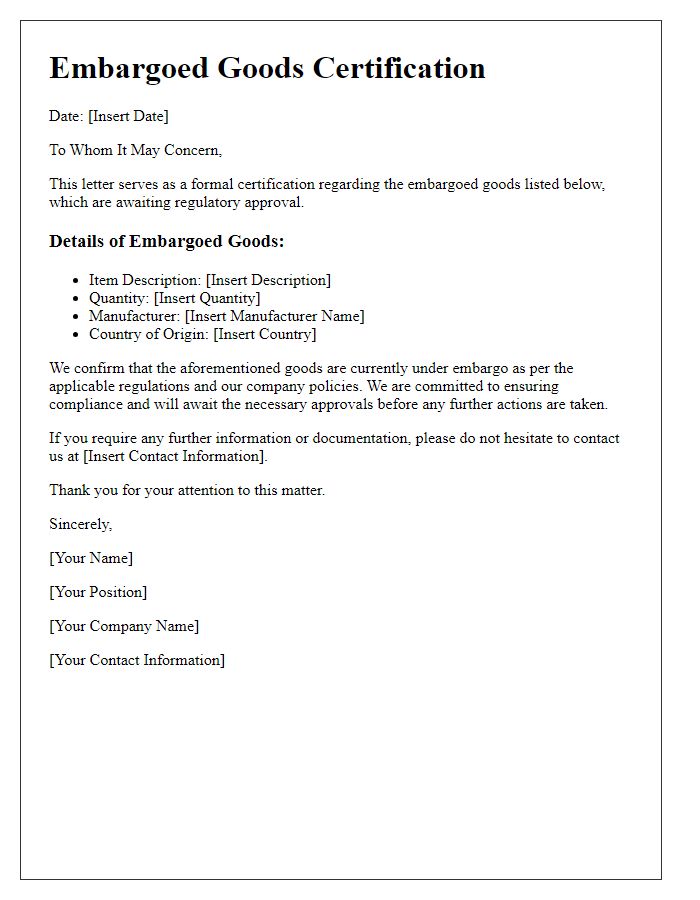
Letter template of embargoed goods certification for logistics providers
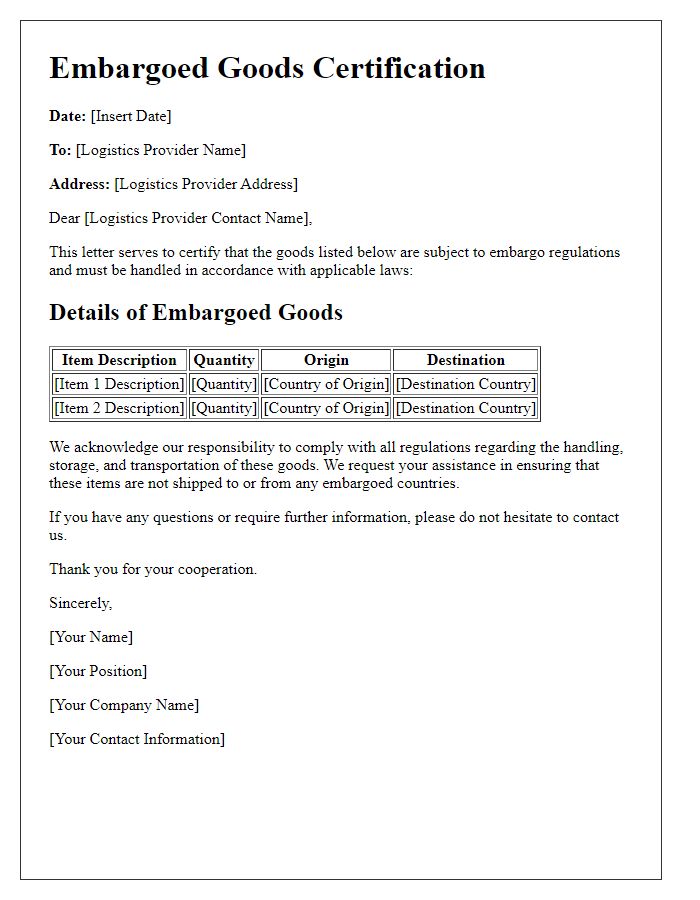
Letter template of embargoed goods certification for legal documentation
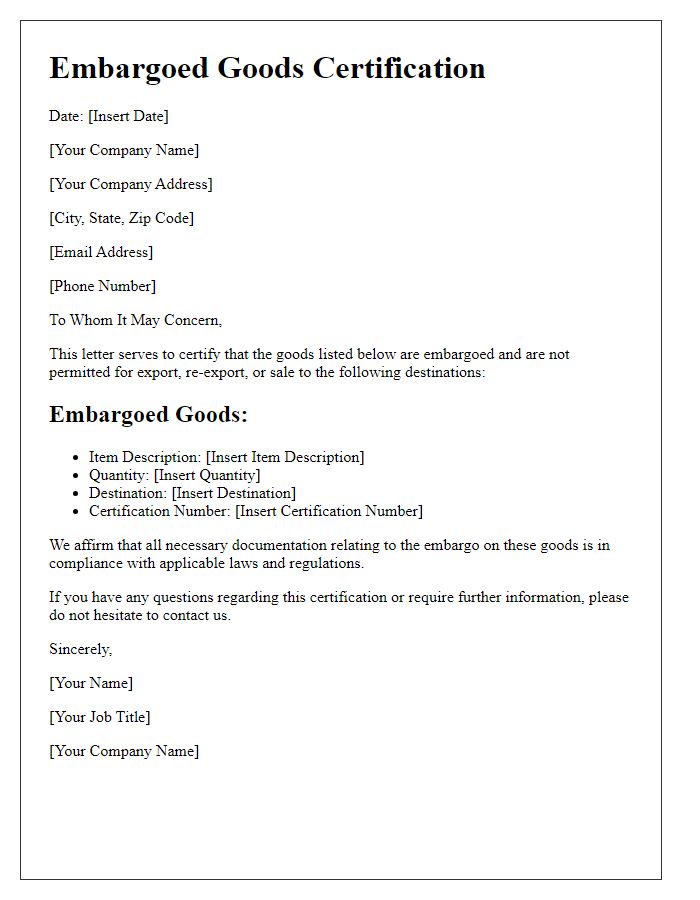
Letter template of embargoed goods certification for supply chain management
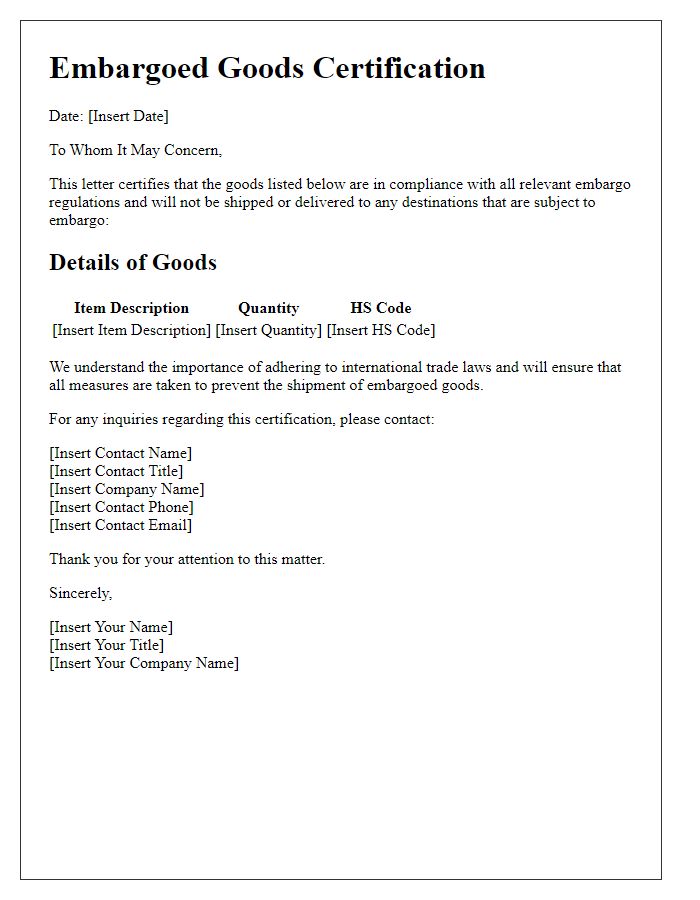

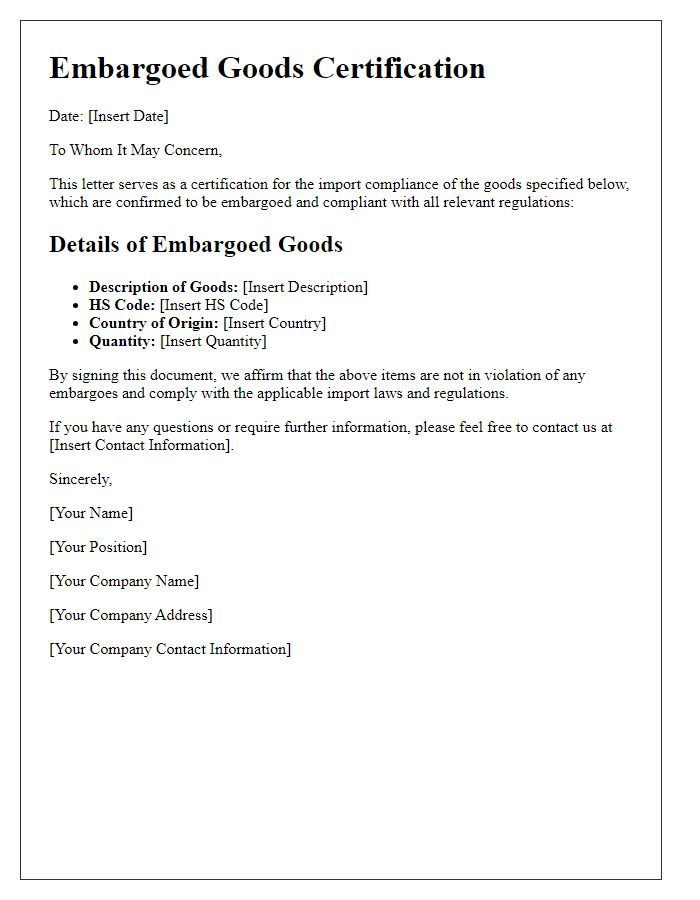
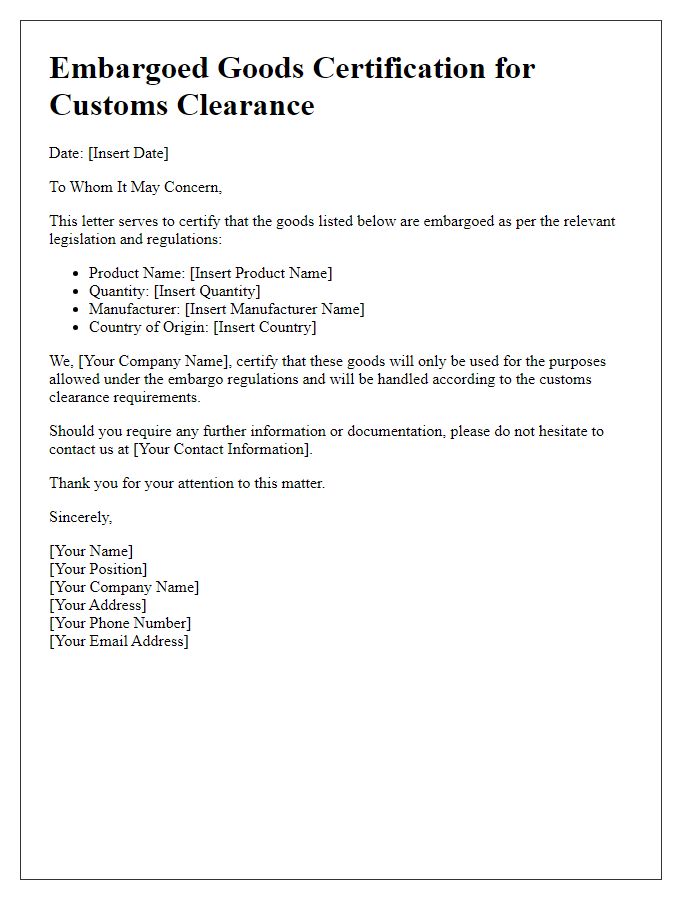
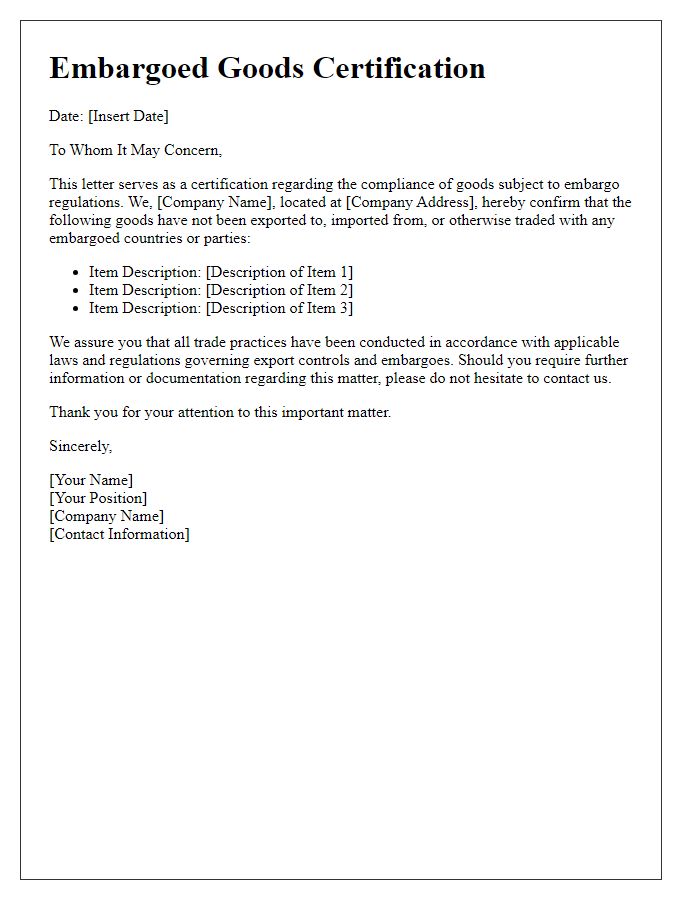
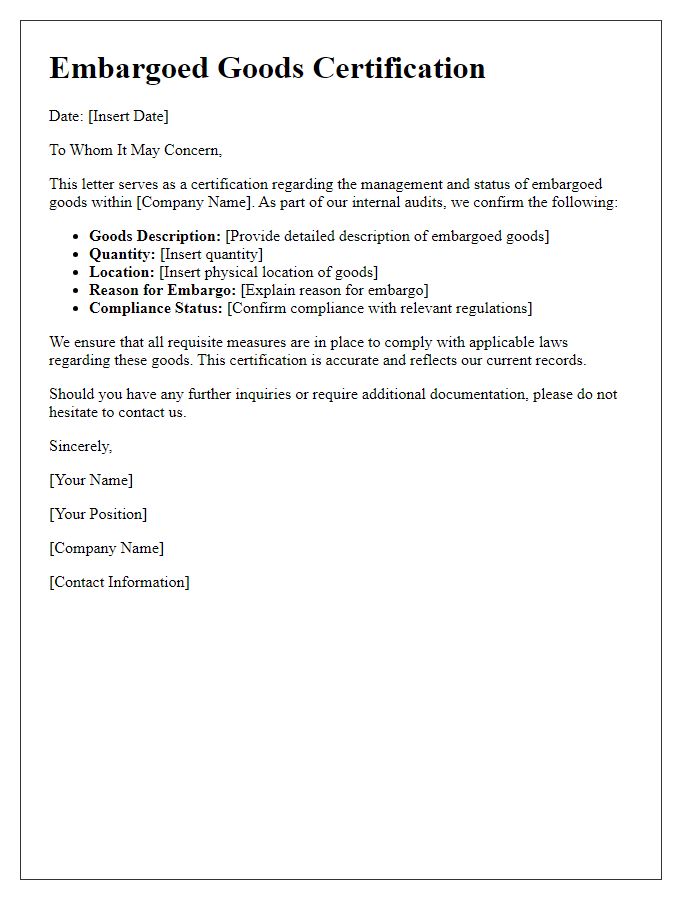
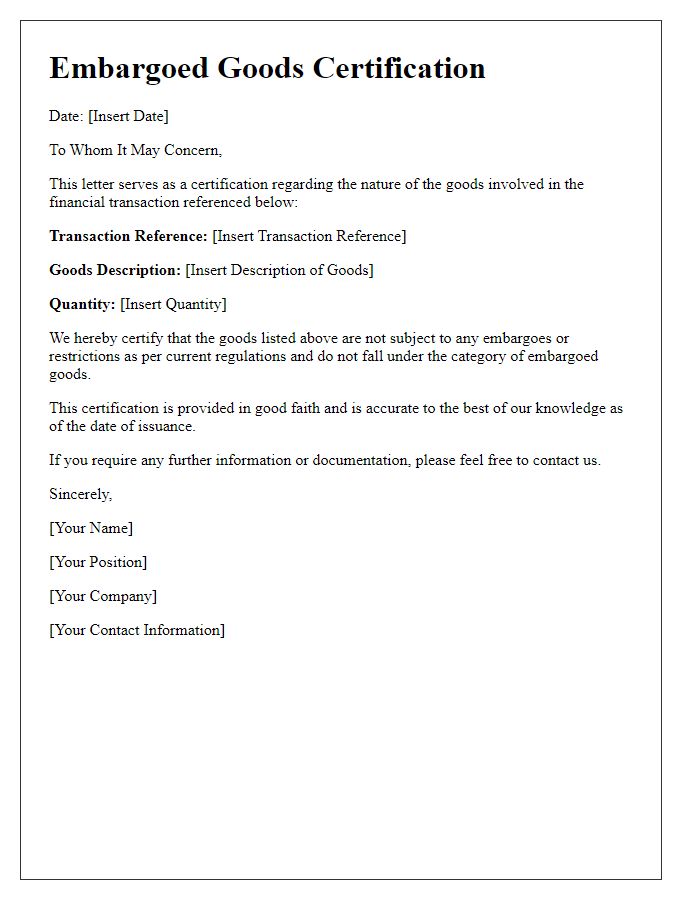

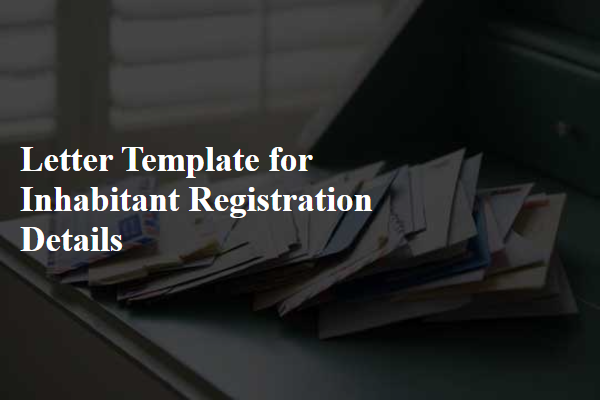
Comments